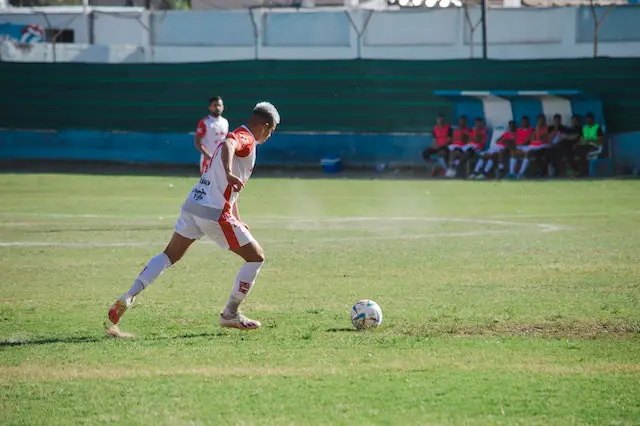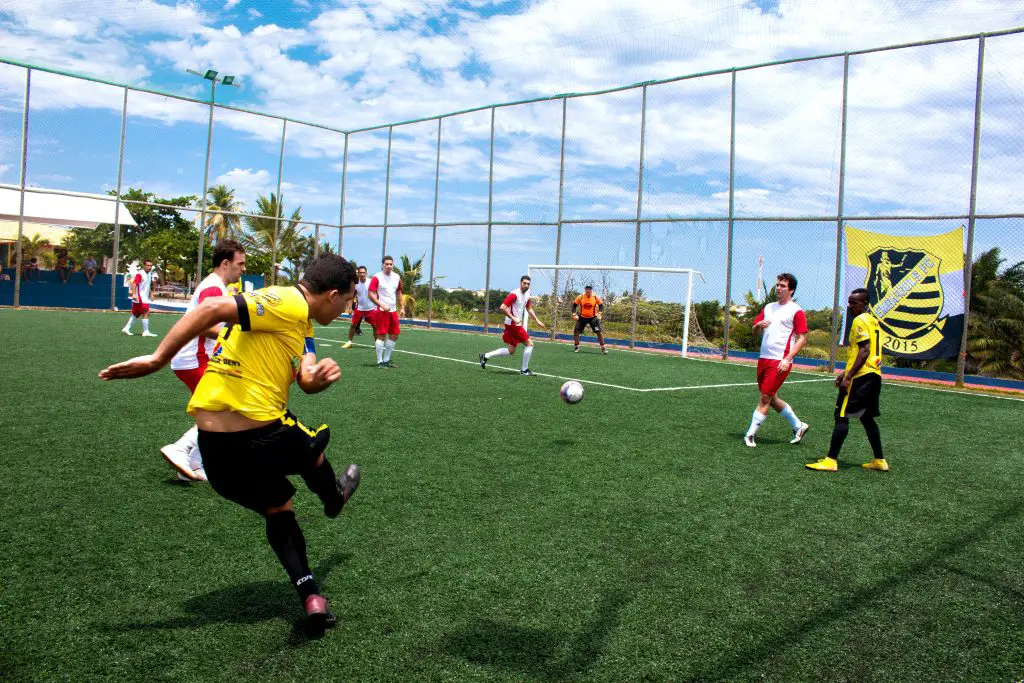You step onto the soccer field, anticipation building in your chest as the game begins. The sun beats down on you, and you feel a heavy, stifling moisture in the air. Little do you know, this humidity is about to play a crucial role in your performance.
As the game progresses, you struggle to catch your breath, your movements slow, and your agility diminishes. The truth is, humidity can have a significant impact on soccer performance, affecting both the players’ physical ability and mental focus.
In this article, we will explore how humidity affects soccer performance and uncover strategies to overcome its challenges.
Effects of Humidity on Soccer Performance
Humidity is often a hidden factor that can greatly impact soccer performance. The level of moisture in the air can have various effects on the physical and mental capabilities of players. We will also explore the different ways in which humidity can influence soccer performance and discuss strategies for dealing with its effects.
Impact on Physical Endurance
One of the primary ways in which humidity affects soccer performance is through its impact on physical endurance. High humidity can make the air feel heavier, making it harder for the body to extract oxygen and deliver it to the muscles.
As a result, players may experience increased fatigue and a decrease in overall endurance. This can lead to a decline in performance during the later stages of a match, as players struggle to maintain their energy levels.
Impact on Speed and Agility
Humidity can also have a detrimental effect on speed and agility. The increased moisture in the air can cause players to feel sluggish and less responsive, making it difficult to change direction quickly or reach peak sprinting speeds. This can be particularly challenging for wingers and forwards who rely on their speed to beat defenders and create scoring opportunities.
Impact on Muscle Fatigue
Playing in high humidity conditions can accelerate muscle fatigue. The excess moisture in the air can impair the body’s ability to cool itself through sweating, leading to an increase in body temperature. This rise in temperature can cause muscles to tire more quickly, hindering a player’s ability to perform at their best. Additionally, the increased sweat production can also lead to dehydration, further exacerbating muscle fatigue.

Impact on Hydration
Humidity plays a crucial role in the body’s hydration levels during a soccer match. High humidity means that players sweat more profusely, leading to increased water loss. It is essential for players to maintain proper hydration levels to perform at their peak.
Failure to hydrate adequately can result in decreased focus, impaired decision-making, and reduced physical performance. Coaches and players must pay extra attention to hydration strategies when playing in humid environments.
Impact on Ball Movement
The level of humidity can significantly affect how the soccer ball moves on the field. In humid conditions, the ball absorbs moisture from the air, making it heavier and altering its flight trajectory. The increased weight can make the ball harder to pass accurately and control.
This affects both short and long passing, as well as shooting accuracy. Players must adapt their technique and adjust their precision when playing in humid conditions to ensure optimal ball control and movement.
Impact on Respiratory Function
High humidity can also impact respiratory function during a soccer match. The increased moisture in the air can lead to a feeling of breathlessness and difficulty in breathing deeply.
This can be particularly challenging for players with underlying respiratory conditions, such as asthma. The decreased availability of oxygen can limit a player’s endurance and overall performance on the field.
Impact on Mental Performance
In addition to its physical effects, humidity can also impact a player’s mental performance. Playing in hot and humid conditions can be mentally taxing, as it requires the body to work harder to regulate temperature and maintain hydration levels.

This added physical strain can lead to a decline in focus, concentration, decision-making, and overall mental acuity. Teams and individuals must develop strategies to stay mentally sharp and combat the effects of humidity on their cognition.
Impact on Injury Risk
Humidity can increase the risk of injuries during a soccer match. When players are fatigued due to the physical demands of playing in high humidity, their coordination and reaction times can be compromised.
This can result in an increased likelihood of slips, falls, and other accidents on the field. Furthermore, the added strain on the muscles and joints due to the heat and humidity can worsen existing injuries or increase the risk of muscle strains and sprains.
Prevention and Management
To mitigate the effects of humidity on soccer performance, there are several preventive measures that players and teams can take. Firstly, it is crucial to acclimatize to the conditions before a match or tournament.
Gradually increasing the training intensity in humid environments can help the body adjust and improve its ability to perform in these conditions. Additionally, proper hydration before, during, and after the match is essential to maintain fluid balance and prevent dehydration.
Strategies for Adaptation
Adapting to the effects of humidity requires a multi-faceted approach. Wearing lightweight and breathable clothing can help players stay cooler and more comfortable during matches. Utilizing cooling strategies such as ice towels and cold water immersion during breaks can also aid in lowering body temperature. Coaches and trainers can implement rotation strategies to ensure players’ rest and recovery, helping to reduce the risk of fatigue-related injuries.
Conclusion
In conclusion, humidity has significant effects on soccer performance across various aspects of the game. From physical endurance and speed to mental performance and injury risk, playing in high humidity conditions presents unique challenges for players.
However, by understanding the impacts of humidity and implementing appropriate preventive and management strategies, players and teams can adapt and perform optimally in even the most humid environments.


